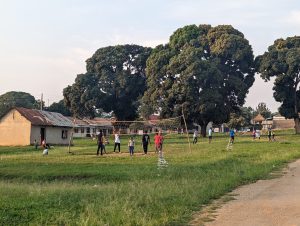Two CUNY SPH doctoral students, Priscilla Lopez and Gabrielle deFiebre received Emerging Scholars in Family Planning awards from the Society for Family Planning, to further their dissertation research.
The grant program aims to cultivate the next generation of scholars by supporting their work and welcoming them into the family planning research community.
Priscilla Lopez, a student in the Epidemiology track, was awarded $6,569 for her proposed project, which seeks to help establish sexual and reproductive health equity through early, consistent, and comprehensive sex education across all communities in the United States.
“Sex education has typically rarely covered topics like LGBTQ healthcare, abortion, provider bias, among others,” says Lopez. “As a first-generation college graduate, Latina, and child of immigrants, I am passionate about establishing sexual and reproductive health equity through K-12 sex education, as it is such an early social determinant of health.”
Lopez previously worked as a research intern at Planned Parenthood while completing an MPH in epidemiology at Columbia University.
Gabrielle deFiebre, a student in the Community Health and Health Policy track, was awarded $5,158 for her project, a mixed methods study to quantitatively describe patterns in reversible and permanent contraception methods and qualitatively understand factors that influence contraceptive decision-making, particularly related to female sterilization, among those with disabilities.
“Approximately 20% of individuals in the United States have a disability, but despite being such a large percentage of the population and having the same sexual and reproductive health needs as people without disabilities, people with disabilities face barriers in accessing sexual and reproductive health care,” says deFiebre. “As a person with a disability, it is important for me to contribute to the field to help reduce barriers to accessing this care for those with disabilities, because we are often left out of the conversation around access to reproductive health care and reproductive justice.”
deFiebre is Associate Director of Research and Education at the Siegel Rare Neuroimmune Association, a patient advocacy organization that advocates for individuals diagnosed with rare neuroimmune disorders of the central nervous system. She previously worked on reproductive health research projects involving increasing access to reproductive health care in primary care at the Reproductive Health Access Project (RHAP) and the Institute for Family Health, and currently serves on the board of directors for RHAP. She has also worked as a teaching assistant and adjunct lecturer at the CUNY SPH.





